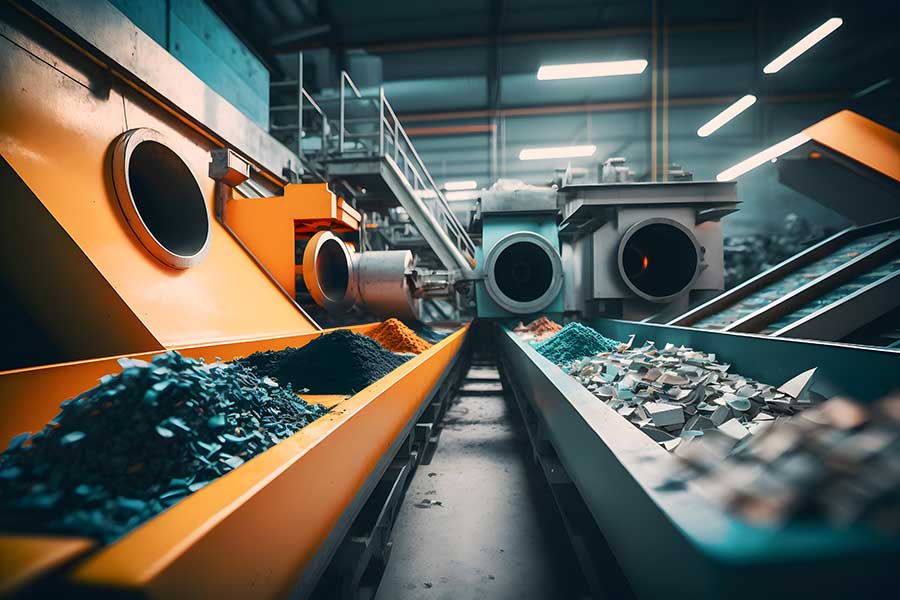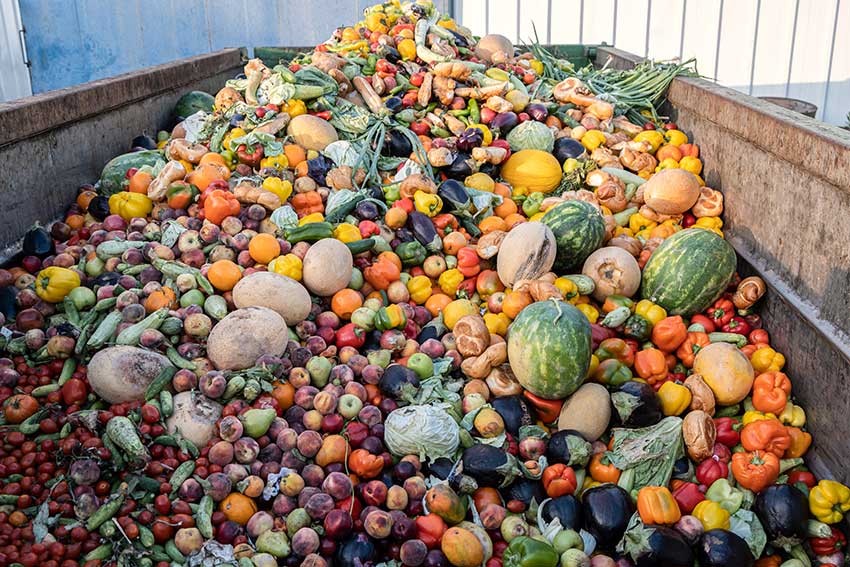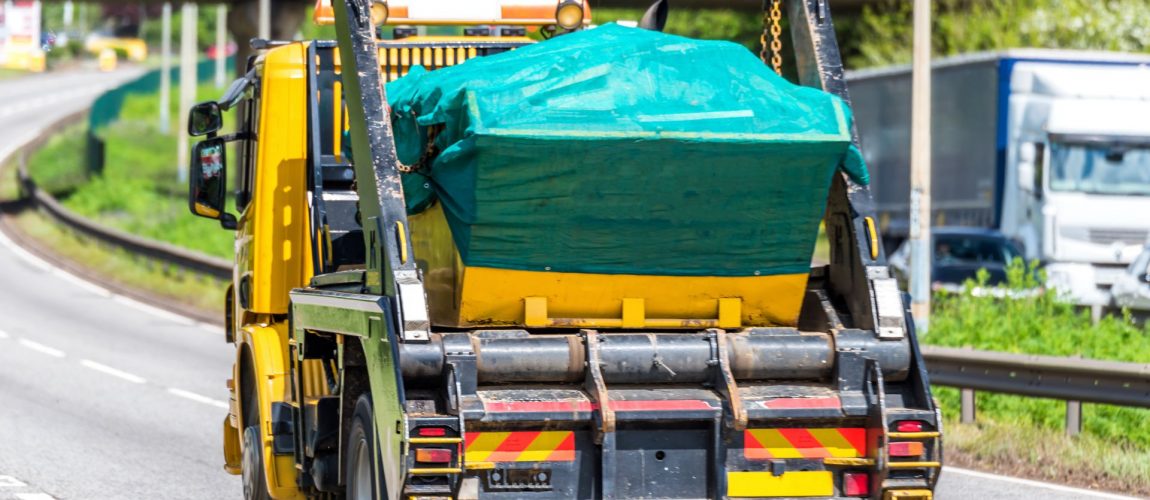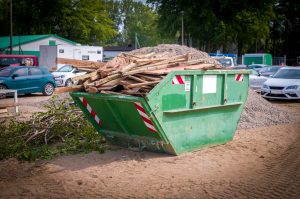The United Kingdom, known for its vibrant industries and bustling economy, inevitably produces a significant amount of waste. Responsible waste management is crucial not only for environmental preservation but also for sustainable economic growth. In this blog post, Bushbury Skip Hire will delve into various sectors of the UK economy, exploring how they contribute to waste generation and highlighting best practices for waste reduction and recycling.
Construction Industry
The construction industry, a cornerstone of the UK economy, is a substantial contributor to waste production. This sector encompasses activities like building and infrastructure construction, renovation, and demolition. These processes generate a diverse range of waste materials, including concrete, bricks, wood, and metals.
Common types of construction waste
Concrete and Bricks: Demolition and construction activities yield substantial amounts of concrete and bricks, which can be recycled or repurposed in various projects.
Wood: Timber from construction sites can often be salvaged for reuse or repurposed for other applications, reducing the demand for new resources.
Metals: Scrap metal is a valuable resource that can be melted down and used in new construction projects, reducing the need for virgin materials.
Regulatory framework for construction waste in the UK
The UK government has established robust regulations to manage construction waste effectively. The Waste Hierarchy, a key principle, prioritises waste prevention, followed by reuse, recycling, recovery, and disposal. Additionally, the Site Waste Management Plans (SWMPs) Regulations require construction projects to plan, manage, and monitor waste generated on-site.
Best practices for waste reduction and recycling in construction
Material Procurement: Opt for sustainable and recycled materials wherever possible to reduce the environmental impact of construction projects.
On-site Sorting: Implement effective waste sorting practices on-site to ensure materials are segregated for recycling or proper disposal.
Reuse and Salvage: Identify opportunities to reuse or salvage materials from demolition or renovation activities, reducing the need for new resources.
Waste Audits: Conduct regular waste audits to monitor and improve waste management practices on construction sites.
Manufacturing Sector
The manufacturing sector is a vital component of the UK economy, producing a wide array of products. This sector, however, generates substantial waste through manufacturing processes, including excess raw materials, packaging, and product defects.
Types of waste generated by manufacturing processes

Production Scrap: Leftover materials from manufacturing processes, such as metal shavings or excess fabric, are considered production scrap.
Packaging Waste: Manufacturers generate packaging waste from materials like cardboard, plastic, and metal containers.
Defective Products: Products that do not meet quality standards may be discarded or require reworking, resulting in waste.
UK regulations for waste disposal in the manufacturing industry
The Environmental Protection Act 1990 and the Waste (England and Wales) Regulations 2011 set out regulations for waste disposal in the manufacturing sector. Manufacturers are encouraged to adopt waste reduction strategies and consider product lifecycle assessments to minimise environmental impact.
Strategies for minimising waste in manufacturing operations
Lean Manufacturing: Implement lean principles to streamline production processes and reduce waste through efficient resource utilisation.
Closed-Loop Manufacturing: Design products and packaging with the intention of reuse or recycling, creating a closed-loop system.
Waste Audits and Tracking: Regularly monitor waste generation and disposal to identify areas for improvement and track progress.
Supplier Engagement: Collaborate with suppliers to minimise excess packaging and explore opportunities for waste reduction.
Hospitality and Food Services
Discussion on waste generation in the hospitality sector
The hospitality and food services industry, while providing delightful experiences for guests, also generates a significant amount of waste. This sector includes hotels, restaurants, catering services, and event venues.
Types of waste produced in hotels, restaurants, and catering services
Food Waste: Restaurants and catering services produce food waste from preparation, unused portions, and expired perishables.
Single-Use Plastics: Disposable cutlery, straws, and packaging contribute to plastic waste in the hospitality sector.
Paper and Cardboard: Packaging, menus, and promotional materials contribute to paper and cardboard waste.

UK guidelines for sustainable waste management in hospitality
The UK Waste (England and Wales) Regulations 2011 apply to the hospitality sector, encouraging waste reduction, recycling, and responsible disposal. The Hospitality Sector Commitment, launched by WRAP (Waste and Resources Action Programme), provides guidance and resources for sustainable waste management practices.
Tips for reducing food and packaging waste in the industry
Menu Planning: Design menus that minimise food waste by utilising seasonal and local ingredients efficiently.
Portion Control: Implement portion control measures to reduce excess food waste in restaurants and catering services.
Reusable and Recyclable Packaging: Choose eco-friendly packaging options that can be recycled or reused.
Staff Training: Provide training to staff on waste management practices and the importance of minimising waste.
Retail and Consumer Goods
The retail industry, a cornerstone of the UK economy, plays a significant role in shaping consumer habits. This sector encompasses a wide range of businesses, from supermarkets to boutiques, each contributing to waste generation.
Types of waste produced by retail businesses and consumers
Packaging Waste: Retailers generate packaging waste from products received from suppliers and packaging used for in-store displays.
Returned and Unsold Items: Items that are returned by customers or remain unsold contribute to waste in the retail sector.
Textile Waste: Clothing and textile retailers generate waste from production overruns, damaged items, and end-of-season stock.
UK policies and initiatives for waste reduction in retail
The UK Packaging Waste Regulations and Extended Producer Responsibility (EPR) schemes place responsibility on retailers and producers to manage packaging waste. Additionally, initiatives like the Courtauld Commitment and WRAP’s Love Food Hate Waste campaign aim to reduce waste in the retail and consumer goods sector.
Recommendations for sustainable shopping and product disposal
Reusable Bags: Encourage the use of reusable bags to reduce the consumption of single-use plastics.
Product Lifecycle Awareness: Educate consumers about the lifecycle of products and the importance of responsible disposal.
Circular Economy Practices: Embrace circular economy principles, such as refurbishing or reselling items, to extend product lifecycles.
Donation and Recycling Programs: Establish programs for customers to donate or recycle unwanted items, promoting a sustainable approach to disposal.
Healthcare and Medical Facilities
The healthcare sector is essential for public well-being but also generates a significant amount of waste, including hazardous materials.
Categories of medical waste and their proper disposal methods

Clinical Waste: Includes items contaminated with bodily fluids or potentially infectious materials and requires special handling and disposal.
Pharmaceutical Waste: Expired or unused medications and pharmaceutical products require safe disposal to prevent environmental harm.
Sharps Waste: Needles, syringes, and other sharp objects must be properly contained and disposed of to prevent injury and contamination.
Categories of medical waste and their proper disposal methods
The Department of Health and Social Care provides guidance on the management and disposal of healthcare waste in the UK, ensuring compliance with the Hazardous Waste Regulations.
Strategies for safe and eco-friendly medical waste handling
Segregation and Labeling: Properly segregate and label different categories of medical waste to ensure safe handling and disposal.
Training and Education: Provide comprehensive training to healthcare staff on proper waste management procedures and safety protocols.
Waste-to-Energy Solutions: Consider waste-to-energy technologies for the safe disposal of non-recyclable medical waste.
Agriculture and Farming
The agricultural industry is a vital part of the UK’s economy and food supply chain. However, it is not exempt from waste generation, with various practices and processes contributing to agricultural waste.
Types of agricultural waste and their environmental impact
Crop Residues: Stalks, leaves, and other plant parts left after harvest contribute to agricultural waste.
Livestock Manure: Animal waste, if not managed properly, can lead to environmental pollution.
Plastic and Packaging Waste: Agricultural operations often use plastic materials for packaging and mulching, contributing to waste.
UK guidelines for sustainable farming practices and waste management
The UK’s Department for Environment, Food & Rural Affairs (DEFRA) provides guidelines for sustainable farming practices, including waste management. These guidelines focus on reducing environmental impact while ensuring the continued productivity of agricultural operations.
Techniques for composting and recycling agricultural waste
Composting: Utilise composting techniques to convert organic agricultural waste into nutrient-rich soil amendments.
Mulching: Implement mulching practices using biodegradable materials to reduce the need for synthetic materials.
Plastic Recycling: Explore options for recycling plastic materials used in agricultural operations to minimise environmental impact.
In this comprehensive overview, we have explored the diverse industries in the United Kingdom and their contributions to waste generation. From construction to healthcare, each sector presents unique challenges and opportunities for sustainable waste management. By adhering to regulations and implementing best practices, businesses and individuals can play a crucial role in reducing waste and preserving the environment for future generations.
It is imperative that we continue to work together, adopting responsible waste management practices across all industries, to create a more sustainable and environmentally conscious future for the United Kingdom.







